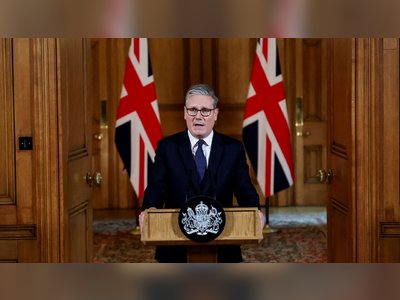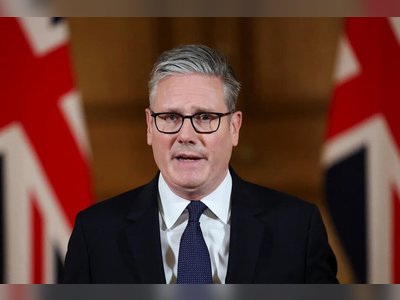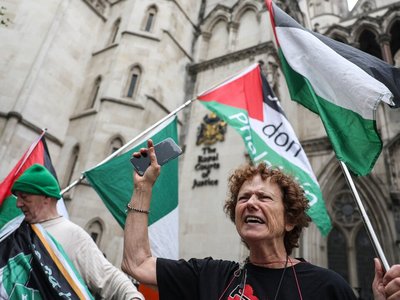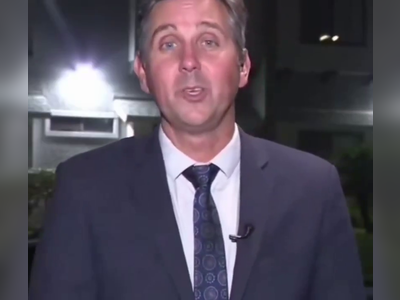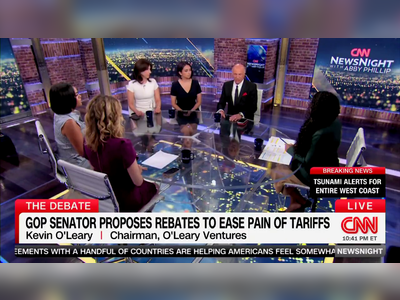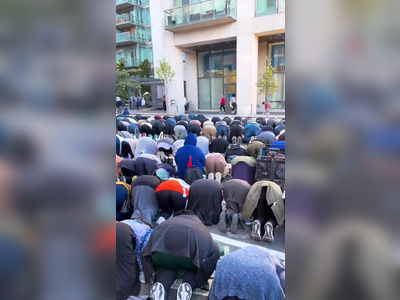Potential Tax Increases on Pensions and Wealth Discussed amid Economic Challenges in the UK
Tax experts foresee targeted tax rises for affluent groups as economic conditions deteriorate.
The Institute for Fiscal Studies (IFS) has indicated that the UK government may consider increasing taxes on pensions and wealth in response to a worsening economic environment.
The remarks come in light of looming challenges facing Chancellor Rachel Reeves's fiscal policies as the autumn budget approaches.
IFS director Paul Johnson expressed concerns that escalating global tensions and economic forecasts could prompt the Chancellor to reassess her financial strategies.
Reeves's prior spring statement included significant cuts to welfare aimed at remaining within her fiscal guidelines.
These measures were designed to mitigate a sharp decline in public finances, which now faces increasing scrutiny.
Johnson emphasized that the unpredictability of external factors, such as recent tariffs imposed by former President Trump, exemplifies the precariousness of the current economic climate, raising the potential for even further tax increases should conditions worsen.
In her recent statement to the House of Commons, Reeves introduced a £14 billion package aimed at restoring £9.9 billion of fiscal headroom.
This move follows a noticeable rise in government borrowing costs, driven partly by domestic agenda and international policies that threaten to impede global growth and re-ignite inflation.
Without the recent fiscal measures, the Office for Budget Responsibility (OBR) had signaled an anticipated £4.1 billion deficit in alignment with Reeves’s fiscal framework, which mandates that day-to-day expenditures be met with corresponding tax revenues.
Johnson remarked on the historically narrow margin of fiscal headroom remaining under Reeves's guidelines, suggesting that speculation surrounding potential tax hikes is likely to persist.
He cited taxes that may be considered—such as a levy on pensions, a wealth tax targeting high-income earners, or alterations to capital gains tax—but clarified that the mere discussion of these options could yield detrimental economic consequences.
In a climate marked by uncertainty, the OBR conveyed that a detrimental escalation in trade conflicts could entirely deplete the chancellor's fiscal headroom.
Only hours after Reeves's statements, Trump announced a 25% tariff on all car imports to the United States, underscoring the volatile landscape.
Reeves and her party had previously committed to maintaining certain fiscal integrity measures, pledging not to elevate income tax, VAT, or national insurance rates while also retaining the corporate tax rate at 25%.
However, the potential for adverse economic repercussions makes the formulation of a cohesive tax strategy increasingly complex.
Johnson noted that a new wave of spending cuts would be particularly challenging given the impending June spending review.
The political backlash against previous welfare alterations makes further changes to this area less viable as well.
He pointed out that extending the freeze on personal allowances for income tax and national insurance represents one of the more straightforward means of raising additional revenue, potentially bringing in approximately £10 billion for the Treasury.
The discourse surrounding pensions taxation raises significant concerns for fiscal planning, with Johnson highlighting their attractiveness as a target for revenue generation.
He remarked that prior speculation on pensions taxation led many to make adjustments in their financial affairs, even in the absence of actual policy changes from the Chancellor.
This uncertainty suggests that similar speculation may emerge again, complicating individuals' financial decision-making in the months ahead.
The remarks come in light of looming challenges facing Chancellor Rachel Reeves's fiscal policies as the autumn budget approaches.
IFS director Paul Johnson expressed concerns that escalating global tensions and economic forecasts could prompt the Chancellor to reassess her financial strategies.
Reeves's prior spring statement included significant cuts to welfare aimed at remaining within her fiscal guidelines.
These measures were designed to mitigate a sharp decline in public finances, which now faces increasing scrutiny.
Johnson emphasized that the unpredictability of external factors, such as recent tariffs imposed by former President Trump, exemplifies the precariousness of the current economic climate, raising the potential for even further tax increases should conditions worsen.
In her recent statement to the House of Commons, Reeves introduced a £14 billion package aimed at restoring £9.9 billion of fiscal headroom.
This move follows a noticeable rise in government borrowing costs, driven partly by domestic agenda and international policies that threaten to impede global growth and re-ignite inflation.
Without the recent fiscal measures, the Office for Budget Responsibility (OBR) had signaled an anticipated £4.1 billion deficit in alignment with Reeves’s fiscal framework, which mandates that day-to-day expenditures be met with corresponding tax revenues.
Johnson remarked on the historically narrow margin of fiscal headroom remaining under Reeves's guidelines, suggesting that speculation surrounding potential tax hikes is likely to persist.
He cited taxes that may be considered—such as a levy on pensions, a wealth tax targeting high-income earners, or alterations to capital gains tax—but clarified that the mere discussion of these options could yield detrimental economic consequences.
In a climate marked by uncertainty, the OBR conveyed that a detrimental escalation in trade conflicts could entirely deplete the chancellor's fiscal headroom.
Only hours after Reeves's statements, Trump announced a 25% tariff on all car imports to the United States, underscoring the volatile landscape.
Reeves and her party had previously committed to maintaining certain fiscal integrity measures, pledging not to elevate income tax, VAT, or national insurance rates while also retaining the corporate tax rate at 25%.
However, the potential for adverse economic repercussions makes the formulation of a cohesive tax strategy increasingly complex.
Johnson noted that a new wave of spending cuts would be particularly challenging given the impending June spending review.
The political backlash against previous welfare alterations makes further changes to this area less viable as well.
He pointed out that extending the freeze on personal allowances for income tax and national insurance represents one of the more straightforward means of raising additional revenue, potentially bringing in approximately £10 billion for the Treasury.
The discourse surrounding pensions taxation raises significant concerns for fiscal planning, with Johnson highlighting their attractiveness as a target for revenue generation.
He remarked that prior speculation on pensions taxation led many to make adjustments in their financial affairs, even in the absence of actual policy changes from the Chancellor.
This uncertainty suggests that similar speculation may emerge again, complicating individuals' financial decision-making in the months ahead.

